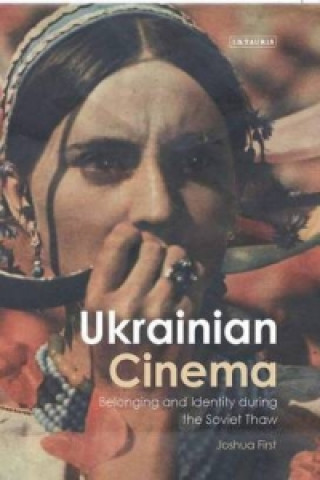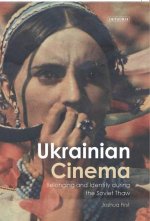
Doručení
Nákupní rádce





Nehodí se? Vůbec nevadí! U nás můžete do 30 dní vrátit
 Dárkový poukaz
V libovolné hodnotě
Dárkový poukaz
V libovolné hodnotě
S dárkovým poukazem nešlápnete vedle. Obdarovaný si za dárkový poukaz může vybrat cokoliv z naší nabídky.
Ukrainian Cinema
 Angličtina
Angličtina
 527 b
527 b
30 dní na vrácení zboží
Mohlo by vás také zajímat


Ukrainian Cinema: Belonging and Identity during the Soviet Thaw is the first concentrated study of Ukrainian cinema in English. In particular, historian Joshua First explores the politics and aesthetics of Ukrainian Poetic Cinema during the Soviet 1960s-70s. He argues that film-makers working at the Alexander Dovzhenko Feature Film Studio in Kyiv were obsessed with questions of identity and demanded that the Soviet film industry and audiences alike recognize Ukrainian cultural difference. The first two chapters provide background on how Soviet cinema since Stalin cultivated an exoticised and domesticated image of Ukrainians, along with how the film studio in Kyiv attempted to rebuild its reputation during the early sixties as a center of the cultural Thaw in the USSR. The next two chapters examine Sergei Paradjanov's highly influential Shadows of Forgotten Ancestors (1965) and its role in reorienting Dovzhenko Studio toward the auteurist (some would say elitist) agenda of Poetic Cinema. In the final three chapters, Ukrainian Cinema looks at the major works of film-makers Iurii Illienko, Leonid Osyka, and Leonid Bykov, among others, who attempted (and were compelled) to bridge the growing gap between a cinema of auteurs and concerns to generate profits for the Soviet film industry.
Informace o knize
 Angličtina
Angličtina
Kategorie




 Jak nakupovat
Jak nakupovat























